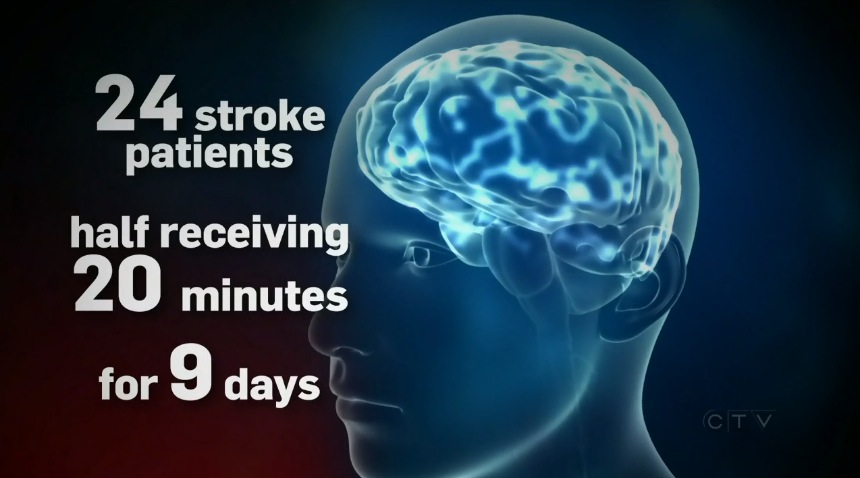Watch the CTV news story.
Dr. Alexander Thiel, director of the Comprehensive Stroke Centre at Montreal’s Jewish General Hospital, said the TDCS treatments have been studied before, but what’s special about the study out of Oxford is that it suggests the treatment may be causing structural changes in the brain that contribute to the patient’s recovery.
“This is important because it could either indicate that some parts of these nerve cells are able to regenerate, or these nerve cells try to form alternative pathways to reroute the traffic in the brain to a different route from the one that has been destroyed by the stroke,” he told CTV News.
Stroke patients in Canada can’t get TDCS therapy outside of a research study. But with several studies underway around the world, scientists hope they’ll be able to quickly confirm that brain stimulation has the power to accelerate stroke recovery.
Full article: Electrical brain stimulation can help recovery from stroke: study
Study: Ipsilesional anodal tDCS enhances the functional benefits of rehabilitation in patients after stroke
Study author: Charlotte Stagg

